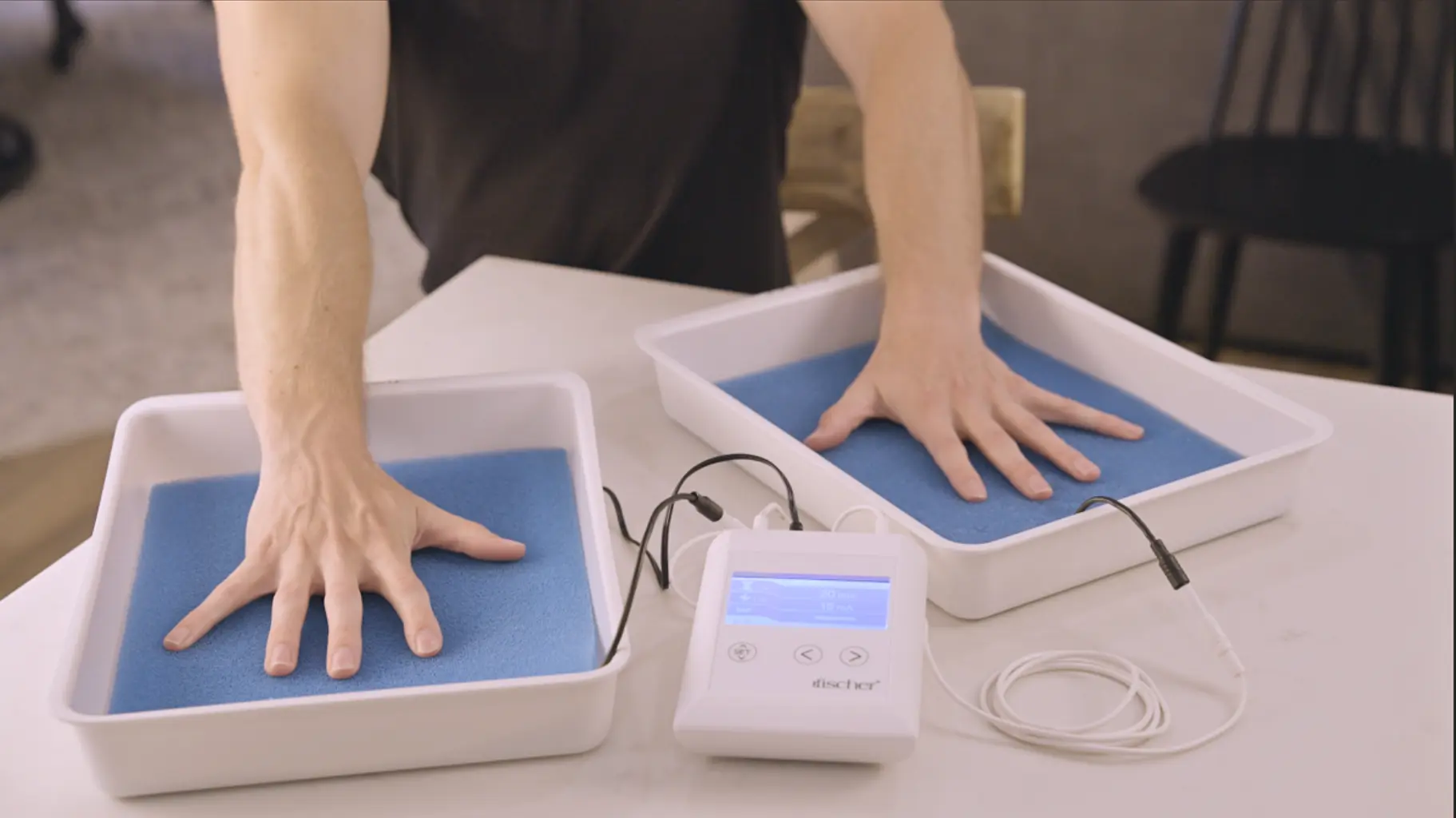Dermatology Tips and Treatments for Hyperhydrosis of Hands: Innovative Solutions
Dermatology Tips and Treatments for Hyperhydrosis of Hands: Innovative Solutions
Blog Article
Understanding the Source of Excessive Sweating and Its Influence On Day-to-day Live
While it is frequently recognized as a physical reaction to control body temperature level, the triggers for too much sweating can differ commonly among people, incorporating not only physical aspects however also psychological and mental aspects. By diving right into the root triggers of hyperhidrosis and discovering its diverse effects, a deeper understanding of this pervasive problem can be gotten, shedding light on the intricacies that people grappling with excessive sweating browse on a daily basis.
Physiology of Sweat Glands
The policy of sweat manufacturing, a crucial physiological process, is largely controlled by the activity of sweat glands dispersed across the human body. Sweat glands are classified right into 2 major types: eccrine and apocrine glands. Eccrine glands are the most many and are found in mostly all areas of the body. They play an important duty in thermoregulation by secreting a watery fluid onto the skin's surface, which helps and evaporates cool the body down. On the other hand, apocrine glands are concentrated in areas abundant in hair roots, such as the armpits and groin, and their secretions are thicker and milklike in look.
When the body temperature rises, either as a result of exercise, high temperature levels, or emotional anxiety, the anxious system causes the sweat glands to generate sweat. This sweat is made up mostly of water and electrolytes like salt and chloride. The procedure of sweat production is important for keeping the body's interior temperature level within a narrow, ideal variety, highlighting the important role gland play in human physiology.
Triggers for Excessive Sweating
In recognizing the origin causes of excessive sweating, it is important to determine the triggers that can lead to this physiological reaction. Physical effort, high temperature levels, and spicy foods are additionally understood to set off extreme sweating in individuals susceptible to this problem.
Additionally, medicines such as some antidepressants, opioids, and particular supplements can likewise act as triggers for hyperhidrosis. Recognizing these triggers is necessary in handling excessive sweating properly - Sweaty hands treatment. By recognizing and addressing the details triggers that trigger extreme sweating in an individual, healthcare carriers can create individualized therapy strategies to relieve this problem and improve the individual's high quality of life
Medical Conditions Associated
Linked with excessive sweating are various clinical problems that can aggravate this physiological reaction. One typical look at these guys condition is hyperhidrosis, a problem identified by unusually raised sweating that surpasses the body's thermoregulatory requirements. This can materialize in focal areas like the hands, soles, underarms, or face, influencing an individual's quality of life because of social embarrassment and pain.
In addition, endocrine conditions such as hyperthyroidism, diabetes, and menopausal hot flashes can likewise lead to excessive sweating. Hyperthyroidism creates an overflow of thyroid hormones, increasing metabolic process and causing sweating.
Furthermore, infections like hiv, consumption, and endocarditis have been connected with night sweats, a typical sign recognized to interrupt sleep and impact total health. These clinical problems highlight the varied variety of underlying aspects that can add to extreme sweating, necessitating comprehensive evaluation and administration by medical care experts.
Emotional and Mental Aspects

Effect On Social Interactions
Extreme sweating can have profound effects on an individual's ability to involve easily in social communications. The visible signs of sweat discolorations or damp spots on additional hints apparel can cause humiliation and self-consciousness, triggering individuals to withdraw from social situations. This withdrawal can affect relationships, restriction social activities, and impede individual and expert growth.

Moreover, the anxiousness and self-esteem concerns stemming from excessive sweating can affect communication and social skills. People might struggle to concentrate on discussions, participate in group activities, or express themselves click for more with confidence. This can lead to feelings of isolation and loneliness, as social links come to be challenging to preserve.
Verdict

While it is commonly understood as a physical reaction to control body temperature level, the triggers for extreme sweating can differ commonly amongst people, incorporating not just physical variables but likewise emotional and emotional aspects. By diving into the origin triggers of hyperhidrosis and discovering its complex effects, a much deeper understanding of this prevalent problem can be acquired, losing light on the intricacies that people grappling with too much sweating navigate on a day-to-day basis.
Physical effort, high temperature levels, and spicy foods are additionally recognized to cause too much sweating in people vulnerable to this problem. By recognizing and addressing the certain triggers that prompt extreme sweating in a specific, medical care providers can establish personalized therapy strategies to ease this problem and improve the person's high quality of life.
Extreme sweating can have extensive impacts on an individual's capacity to engage conveniently in social interactions.
Report this page